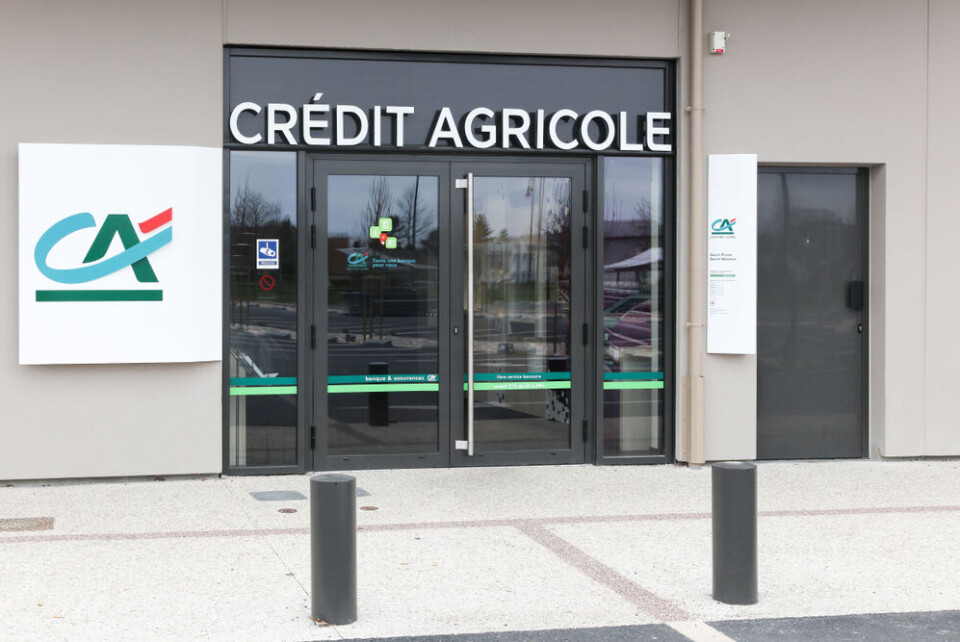-
Points to check before buying a property in France
Cracks, termites, electrical checks…what to look out for
-
France sees record bank branch closures as BNP and Société Générale lead cuts
Almost all banking operations can be done online today
-
Many Société Générale customers to be charged additional fees from April
There is some good news for international banking and instant transfers, however
French bank fees rise almost 3% after moderate year in 2023
Fees and charges have risen more steeply than last year, a new study finds, with lower level financial customers worse hit than the most well off

French banks' fees for this year have risen 2.5-3% on average this year, compared to a relatively stable 2023, a study by consumer association CLCV - published on Tuesday, January 9 - found.
Fees in 2023 compared to 2022 were partly reigned in by a government policy limiting rises to no more than 2%, as a spending power measure. This year they have risen more steeply, though still less than inflation, which was 4.9% in 2023 according to Insee.
CLCV evaluated around 100 banks in France, including:
- BNP Paribas
- Société Générale
- Regional branches of Crédit Agricole
- The BPCE network
CLCV concludes that ‘small customers’ with basic services, such as a simple account and one debit card, and ‘medium customers’ who have two or more cards with loss and theft insurance, are suffering the highest rise in rates, of 2.97% and 3% respectively.
Since January 1 this year, annual bank charges have risen to €66.23 for the first group, and €147.80 for the second, CLCV said.
“Heavy consumers” - which CLCV defines as two or more cardholders with a Gold or Premier card, with insurance against loss or theft, and a large number of withdrawals - will see their fees rise by 2.52% to €207.65 per year in 2024.
These rises are almost as high as inflation, and are mainly due to the rising cost of accountancy fees, bank cards, and increased package rates, the report states, despite many of these services having “little benefit” to customers, it said.
ATMs and in-branch service fees
Some banks have also increased fees for activities such as withdrawing money from another bank’s ATM, lowering the number of withdrawals allowed at other banks, and in-branch transactions.
Increasing fees for in-branch or less-common transactions also “penalises people who are unable to use online transactions or for less common transactions”, the association said.
The CLCV concludes that:
- Crédit Coopératif and some Crédit Agricole branches are competitive for most customers
- LCL is most competitive for ‘small’ customers
- BNP Paribas is most competitive for “medium” customers
In contrast, SG - the merger of the Société Générale and Crédit du Nord retail banks - is one of the most expensive banks for all customers. Banque Populaire was also found to be expensive, although to a lesser extent.
When it comes to withdrawals, La Fédération bancaire française (FBF) also in a separate study stated that banks in France are increasingly reducing the number of ATMs in service. The number dropped by 12% between 2018 and 2022, it said.
Banking ‘incident’ charges
CLCV’s calculations do not even include charges for banking ‘incidents’, such as going into an unauthorised overdraft. In contrast, comparison tool Panorabanques, which includes these costs in its fees levied to consumers, found that on average, total bank charges across all types of users amount to €220.60 per year.
This means that when these extra charges are included, fees are even higher than that stated for CLCV’s ‘heavy consumers’ figure.
The CLCV also found that the majority of banks charge the maximum allowed for intervention fees (€8), and €50 if a cheque valued at over €50 is rejected. Unauthorised debits can cost as much as €20 at banks including BNP Paribas and Crédit Agricole Nord Midi Pyrénées, the association said.
This aligns with a study by the Comité Consultatif du Secteur Financier (CCSF) last year, which criticised the increasing practice of charging “flat-rate minimum debit interest” even if consumers were just a few cents overdrawn.
It came after trading and consumer watchdog the DGCCRF severely criticised the industry for similar charging practices in September.
Related articles
Tips for reducing your bank charges in France
Seven ways to save on French bank charges
Recap: Brexit loophole lets French banks charge more for UK transfers
























